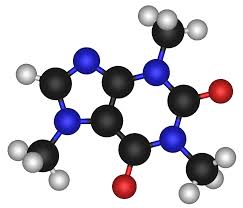记忆方法
将“molecule”分解为“mol-ecule”。想象一个分子是由“mol”(小单位,类似“摩尔”)和“ecule”(类似“回声”,因为分子是重复单元的回声)组成的。这样,你可以将“molecule”记忆为“mol”的小单元回声,表示单个分子。
以上内容由AI生成, 仅供参考和借鉴
中文词源
molecule 分子
来自拉丁语moles,大块,防洪堤,大工程,大建筑物,-cul,小词后缀。用于化学术语分子。
英语词源
- molecule (n.)
- 1794, "extremely minute particle," from French molécule (1670s), from Modern Latin molecula, diminutive of Latin moles "mass, barrier" (see mole (3)). A vague meaning at first; the vogue for the word (used until late 18c. only in Latin form) can be traced to the philosophy of Descartes. First used of Modern Latin molecula in modern scientific sense by Amedeo Avogadro (1811).
权威例句
- 1. So tell me what this molecule does that makes it special.
- 那么告诉我这个分子有何作用而使其与众不同。
- 2. The chemical structure of this particular molecule is very unusual.
- 这个特殊分子的化学结构很不寻常。
- 3. A molecule of water consists of two atoms of hydrogen and one atom of oxygen.
- 水分子由两个氢原子和一个氧原子构成。
- 4. A methane molecule is composed of one carbon atom attached to four hydrogens.
- 甲烷分子由1个碳原子与4个氢原子构成。
- 5. The molecule contains four carbon atoms arranged in a ring with a triple bond between two of them.
- 这个分子包含四个呈环状排列的碳原子,每两个碳原子之间形成一个三价键。
